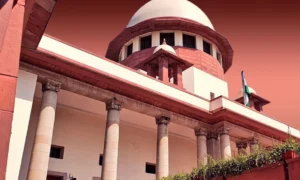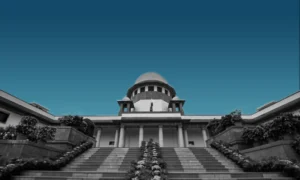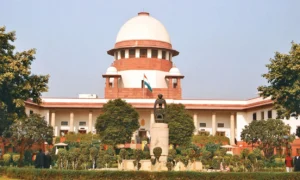
A judgment by the Telangana High Court affirming the unilateral right of Muslim women to seek divorce through khula has ignited legal, religious, and social debates across the country. In response, the All India Muslim Personal Law Board (AIMPLB) has called for an urgent meeting on July 1 to discuss the ruling’s implications.
The verdict, delivered by a division bench comprising Justice Moushumi Bhattacharya and Justice BR Madhusudhan Rao, clarified that under Islamic law, a Muslim woman can seek divorce through khula without requiring her husband’s consent. The court asserted that once a woman expresses her intent for khula, the husband cannot deny the dissolution of marriage, except for negotiating the return of mehr (dower). Even in cases where the dower is not returned, the husband’s refusal holds no legal ground, the court emphasized.
Telangana High Court on Khula
The High Court’s decision is expected to have far-reaching consequences, particularly in the numerous pending family court cases involving Muslim couples across Telangana. Legal experts believe that the ruling elevates a woman’s right to exit a marriage to the same level as the talaq right exercised by men under Islamic jurisprudence.
“This is a bold and progressive interpretation of khula that strengthens a Muslim woman’s agency,” said one family law expert. “It removes unnecessary procedural barriers and recognizes her autonomy.”
Reactions and Controversy
However, the verdict has also sparked strong reactions within conservative religious circles. The AIMPLB, which has often acted as a key voice in matters related to Muslim personal law, is expected to deliberate on the religious and legal implications during its meeting on July 1.
According to a NewsMeter report, the meeting will address concerns about the potential misuse of the judgment and its alignment with traditional interpretations of Islamic law. Advocate Mubasher Hussain Ansari questioned the resistance to women seeking divorce, stating, “Is there anything wrong if a wife wants to end the relationship and files for divorce?”
While women’s rights activists have hailed the verdict as a step forward, some religious scholars argue that a unilateral khula without mutual agreement might conflict with classical jurisprudence, which often involved a mediated process.
Broader Implications
This ruling may serve as a precedent across other states, potentially influencing legislation or judicial interpretation in ongoing personal law debates. It also adds momentum to ongoing discussions about codifying Muslim personal laws in a manner consistent with constitutional values.
As the AIMPLB prepares for its meeting, all eyes are on what position the board will take—whether to challenge the ruling or accept it as a new legal reality. Either way, the High Court’s verdict has opened the door for critical conversations around gender, religion, and legal rights within India’s Muslim community.
This article is published by Crime Today News ©






